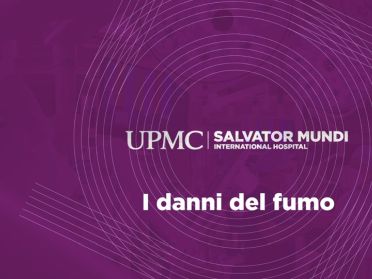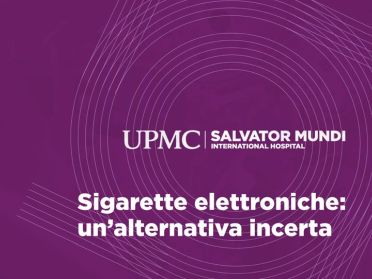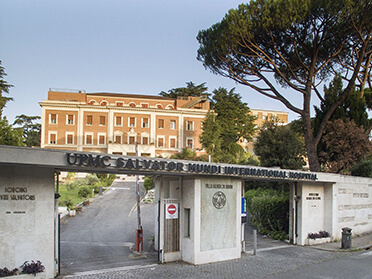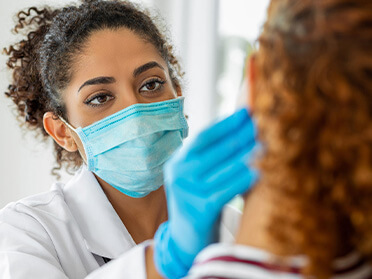Cardiology at UPMC Salvator Mundi International Hospital
At UPMC Salvator Mundi International Hospital, we provide specialized cardiology care. Our team of cardiologists is dedicated to the diagnosis, treatment, and prevention of cardiovascular diseases, offering a multidisciplinary and personalized approach for every patient.
Cardiovascular diseases, affecting the blood vessels and heart, require accurate diagnosis and specific interventions. Thanks to advanced technology and a highly skilled team of cardiologists, we offer preventive screenings, specialized consultations, instrumental tests, imaging diagnostics, and interventional cardiology procedures.
We deliver state-of-the-art treatments tailored to your needs.
Non-Invasive Cardiology Services
Non-invasive or clinical cardiology focuses on diagnosing and treating a wide range of cardiovascular conditions. These include common disorders such as arterial hypertension and dyslipidemia, and more complex conditions such as coronary artery disease, valve diseases, arrhythmias, heart failure, and congenital heart diseases.
At UPMC Salvator Mundi International Hospital, we provide a comprehensive range of non-invasive cardiology services:
- Cardiovascular prevention cardiology screenings. Our team is dedicated to managing cardiovascular risk factors, helping patients prevent the development of future heart diseases.
- Cardiology diagnostics.
- Specialized outpatient consultations. Our team of cardiologists will create a comprehensive plan to treat your condition, supporting you throughout your plan of care. Our services include cardiology consultations, personalized treatment programs, and care options available through outpatient visits, day hospital, or inpatient settings.
- Electrophysiology consultations and assessments. Electrophysiological assessments are essential for monitoring and treating heart rhythm disorders, offering a non-invasive approach to effectively manage arrhythmias.
Cardiovascular rehabilitation: recommended after the acute phase of cardiovascular diseases, integrates supervised physical exercise with risk reduction strategies. This multidisciplinary approach aims to enhance patients' quality of life and minimize long-term complications.
Main conditions treated:
- Coronary artery diseases: Conditions affecting the coronary arteries that can lead to heart ischemia, such as angina pectoris and myocardial infarction. These conditions are caused by atherosclerosis, characterized by the formation of cholesterol plaques that block the flow of oxygen-rich blood to the heart muscle.
- Valve diseases: Heart valve disorders, such as aortic and mitral stenosis or insufficiency (congenital or acquired). These occur when one or more heart valves, responsible for regulating blood flow through the heart, present abnormalities when opening or closing.
- Cardiomyopathies: Disorders of the heart muscle that impair its ability to contract effectively or cause excessive hypertrophy, reducing the heart's efficiency.
- Cardiac arrhythmias: Heart rhythm disorders that can be hyperkinetic, such as atrial fibrillation and paroxysmal tachycardias, or hypokinetic, including symptomatic bradycardias and heart conduction system blocks.
- Cerebrovascular diseases: Conditions such as ischemic and hemorrhagic strokes, or subarachnoid hemorrhages affecting the space between cerebral arteries. These diseases result from disruptions in blood flow within the arteries that supply oxygen and nutrients to the brain.
Our Interventional Cardiology Services
Interventional cardiology is employed when cardiovascular conditions cannot be resolved through medications alone. These include acute coronary syndromes, critical coronary atherosclerosis, and advanced electrical conduction disorders. Using minimally invasive techniques such as coronary angioplasty and the implantation of cardiac devices, our team ensures safe and effective interventions. These treatments can be performed on an outpatient basis, in day surgery or as an inpatient, depending on your clinical needs.
At UPMC Salvator Mundi International Hospital, we are equipped with a state-of-the-art Cath Lab for advanced diagnostic and interventional procedures.
Our Doctors
- Dr. Cristina Belati
- Dr. Flavia Belloni
- Dr. Carla Boschetti
- Dr. Armando Calzolari
- Dr. Maria Teresa Cifarelli
- Dr. Andrea Cortellesi
- Dr. Piergiuseppe De Girolamo
- Prof. Leonardo De Luca
- Dr. Tiziana Ferri
- Prof. Leonarda Galiuto
- Prof. Cesare Greco
- Dr. Giovanni Minardi
- Dr. Marco Stefano Nazzaro
- Dr. Beniamino Rosario Pagliaro
- Dr. Sandro Petrolati
- Dr. Rita Lucia Putini
- Prof. Roberto Ricci
- Dr. Patrizia Romano
- Dr. Elisabetta Rossi
- Dr. Giovanni Serafini
- Dr. Pietro Tanzi
- Dr. Massimo Uguccioni
- Prof. Francesco Versaci
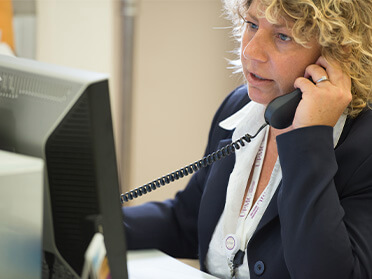
We offer medical services and services on a private basis or in agreement with the main insurance companies. Some of our services are also affiliated with the National Health System.
For more information on active agreements, visit:
